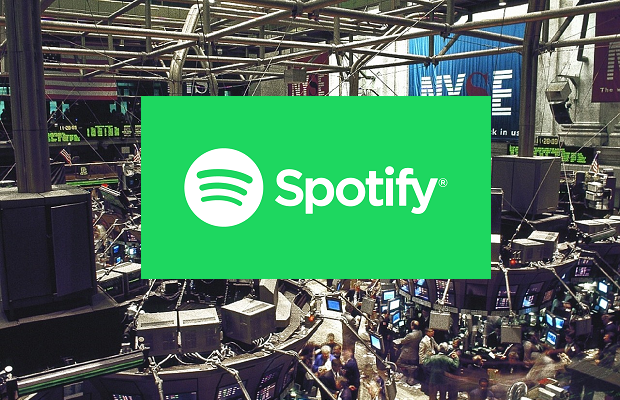Spotify has published its latest financial results, for the final quarter of 2019, as the streaming service looks to expand beyond music to boost profits hamstrung by royalty payments.
The music streaming service ended 2019 with 271 million monthly active users (MAUs), up 31% year-on-year, having added 23 million in Q4, and 64 million over the year as a whole.
124 million of those active users were premium subscribers: 29% growth in the last year, with 11 million having been added during Q4. In 2019 as a whole, Spotify added 28 million subscribers – an average of just over 2.3 million a month.
Spotify’s Q4 revenues grew by 24% year-on-year to €1.86bn, including 24% growth for its premium subscriptions (to €1.64bn) and 23% growth for its advertising revenues (to €217m). In that quarter, Spotify reported an operating loss of €77m and a net loss of €209m
For 2019 as a whole, Spotify’s revenues grew by 28.6% to €6.76bn. The company reported an operating loss for the year of €73m, and a net loss for the year of €186m – up from €78m in 2018.
The streaming service talked up its podcasts push, while also clearly trying to tackle fears by labels that the growth of non-music listening on Spotify will squeeze their royalties eventually.
“We continue to see exponential growth in podcast hours streamed (up approximately 200% Y/Y) and are now seeing clear indications that podcast usage is driving increased overall engagement and retention,” is how Spotify put it. “We have seen early indications that our investments in podcasts are having a positive impact on conversion of free to paid users.”
More than 700k podcasts are now available on the streaming service. Spotify says that more than 16% of its total monthly active users now “engage with podcast content”. That’s 43.4 million people.
“We have a growing body of evidence showing that there are significant benefits to engagement, retention, and conversion of users from Ad-Supported to Premium stemming from consumption of Podcast content,” claimed Spotify.
“We have seen benefits to retention on the order of several hundred basis points, which is a material change on a retention curve, for users that engage with spoken word content relative to those that haven’t, and early data indicates that these users are more likely to convert to Premium over time.”
Spotify also offered its forecasts for growth in 2020. By the end of this year, it expects to have between 328 million and 348 million monthly active users; between 143 million and 153 million premium subscribers; and generate annual revenues of between €8.08bn and €8.48bn – but with an operating loss of €150m-€250m.
Analysis
Chris Beer, Senior Trends Analyst at GlobalWebIndex, said: “Spotify earnings demonstrate a positive outlook for the platform, but also the music streaming industry generally. With accelerated growth for the third consecutive quarter, in subscribers and more brands turning to the platform to reach their target audience.
Spotify has continued to successfully convert its free users into premium subscribers, with 40% of listeners on a paid-for account, compared to 35% this time two years ago. It’s still working hard to monetize its free tier of users, and our research shows its free users are 48% more likely to discover brands through sponsored messages or ads on podcasts. With the company’s announcement of new ad technology earlier this month, both advertisers and creators are better placed to understand the most effective messaging.
As the results show, the company has ridden the crest of a wave with podcasts, making the platform a popular, easy-to-use hub for podcast listening just as they’ve broken into the mainstream. In the last quarter, almost half of its users, on any pricing tier, were listening to podcasts, and they’re becoming a vital part of Spotify’s bottom line. Spotify’s results have come at a time that some are calling a new golden age of audio, and we’ve seen striking growth in audio media in the past few years. Internet users are spending on average almost 20 minutes more per day listening to music-streaming services than they were in 2017.“

